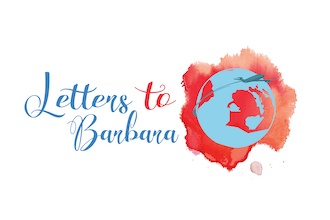We -the Berlinale lovers- often take every organizational aspect of the festival for granted. However, a successful film festival can never be materialized without loads of people working on it and getting involved. Today, I have the pleasure of hosting on Letters to Barbara one of the most influential people of the Berlin International Film Festival: the managing director of the Berlinale, Mariëtte Rissenbeek.
I’m grateful beyond words that Mariëtte agreed to have a talk and share her thoughts. We discussed about cinema, the Berlinale (of course!), and her love for traveling. So, in the following lines, you’ll read about Mariëtte’s favorite movies, her best Berlinale tips, and the places she has on her bucket list. In order to get to know her better, at the bottom of this post, you’ll find Mariëtte’s bio.
So, let’s start with the interview with Mariëtte Rissenbeek.
Mariëtte Rissenbeek Interview
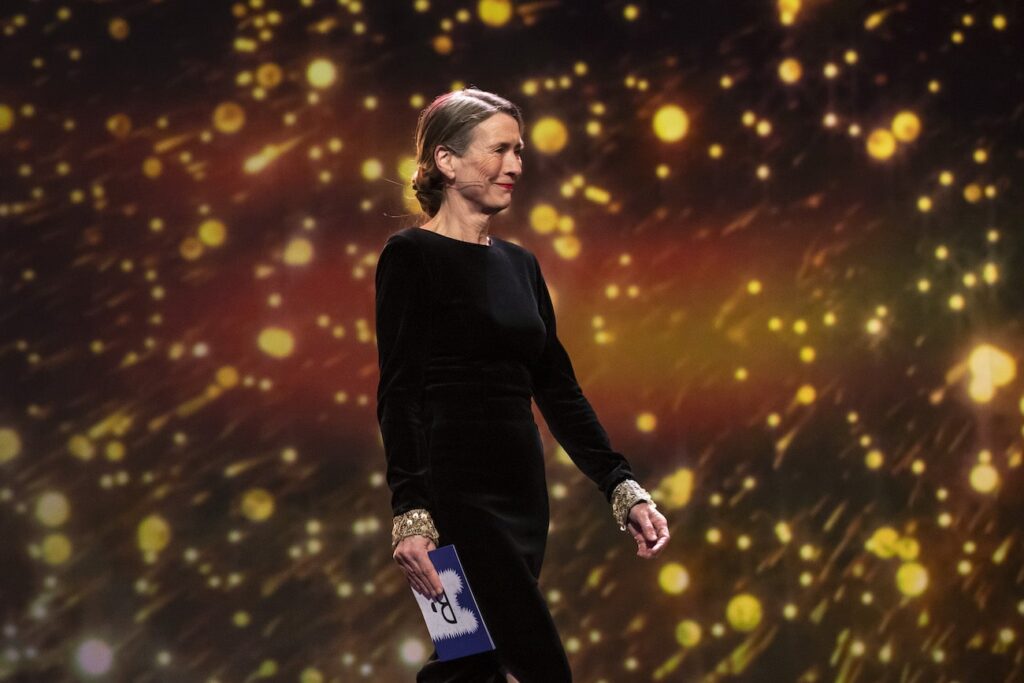
Mariëtte Rissenbeek & Cinema
Question: Hello, dear Mariëtte, and welcome to the Letters to Barbara. I know that you spent the biggest part of your working life in the film industry. Was there a turning point in your life when you decided to work in the cinema or was it something that just happened?
Mariëtte Rissenbeek: I have studied German language and literature, and after finishing my studies, I started working at an advertising agency in Berlin. The agency did some work for the Berlin International Film Festival, and only then I realized you can actually work in the film business. When I noticed a job advertisement for a German distribution company, I decided to apply for the job, as I got interested in the idea of working in cinema.
I have never regretted it – although I also had a small publishing company in the ’90s, publishing Dutch authors in Germany. And I still like to read books a lot. The difference is you share your experience with other people when watching a film in the audience. You share emotions, perceptions, you get influenced by the other viewers. A book you read on your own.
Q: Do you still go to the cinema in your free time, or does it feel like work and you usually avoid it?
MR: I definitely do go to the cinema, yes. I enjoy watching films, I enjoy the experience of really focussing on the screen, on the film, and dive into another world.
Q: How does the rise of platforms like Netflix make you feel about the future of cinema? I mean, do you think that on-demand platforms will somehow dictate the topics, the cinematography techniques, and the aesthetics of films in the future?
MR: Platforms have a wide outreach, and they offer an easy option to watch content. You can watch it everywhere – and on any kind of device. But platforms also need spotlights, and that is the moment they cannot dictate the topics alone. Aesthetics and dramaturgy might change, adapting to the format. At the same time, theatrical films have a stronger spotlight, and they have to be “different” to get highlighted. I am not too worried theatrical films will disappear. Cinema survived television and did not adapt itself either.
Q: Now, I want you to imagine that you are about to walk into a cinema without knowing what’s on show. In addition, you are the only spectator. From the bottom of your heart, which movie (or movies) would you like to watch?
MR: What a question! The film I want to watch can change, of course, according to what’s on in general. I would like to rewatch DUEL (Steven Spielberg), a film which I really liked when it was released. Also, I would like to rewatch THELMA & LOUISE. I can very well imagine watching them all alone in a theater!
Mariëtte Rissenbeek & the Berlinale
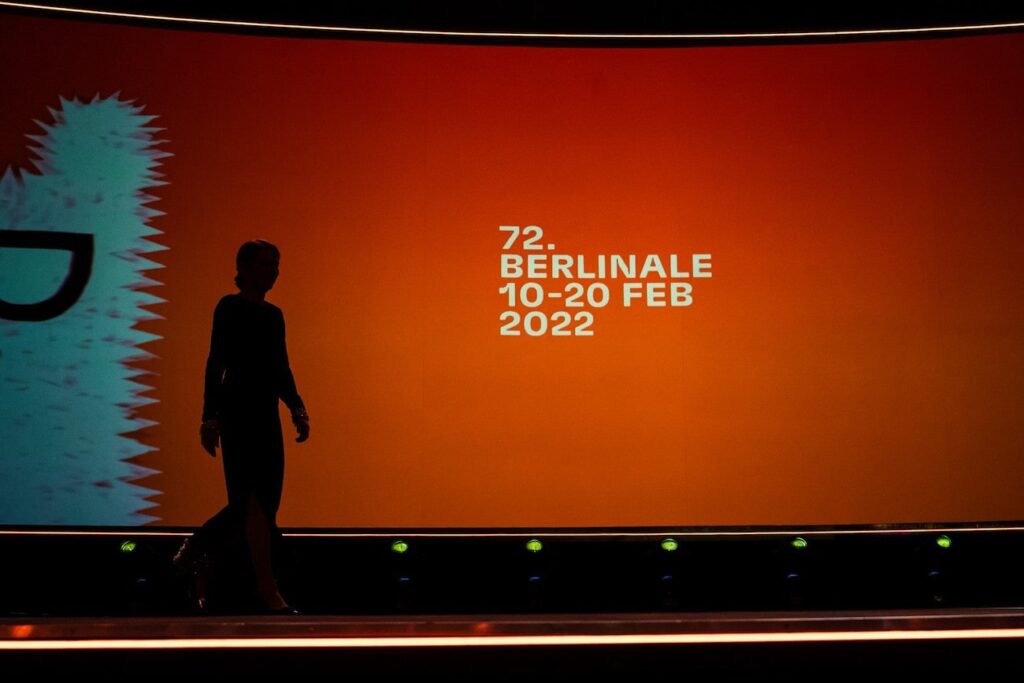
Question: Since 2019, you have been the executive director of the Berlinale. However, this horrible pandemic was challenging for the festival and its future. What do you expect from this year’s festival in terms of attendance, both for the audience and professionals?
Mariëtte Rissenbeek: From what we hear, the professionals are very keen on attending the festival. They are looking forward to an in-person event with encounters, chance meetings, getting inspired by listening to other people, or watching films together with the audience. We are confident we will have a very lively Berlinale and a busy market.
Q: Will we still have allocated seats this year, or will it be possible just to find a seat anywhere and have it? The latter was always part of the laid-back Berlinale atmosphere for me…
MR: You will be able to choose your own seat for the 73rd Berlinale… Although there are advantages of allocated seats as well. You don’t have to push when standing in line as you have your fixed seat anyway.
Q: Since you are the head of the festival, I bet you get to know lots of actors, actresses, and directors. If you could have dinner with one of them, whom would you choose and why?
MR: It would be really exciting to have dinner with Sigourney Weaver! I love her work in general, she has done so many different things, whether it is CALL JANE or ALIEN. She is clever and has a distinct personality.
Q: The Berlinale is known for taking a stand on a wide variety of issues: human rights, political oppression, etc. It is an integral part of the festival’s identity, and I find it great. But did this fact ever upset sponsors or industry professionals?
MR: Many sponsors want to be part of the festival exactly for those reasons. My impression is that industry professionals attend the Berlin Film Festival because it is so diverse and so concrete in many aspects. It is not only about glamour, it is also about reality.
Q: I must admit that I was skeptical when I first read about the Encounters. However, it soon became one of my favorite Berlinale sections. How difficult was it for you to add a new section to the festival, and how did you develop the successful Encounters idea?
MR: Carlo developed the Encounters profile, the section is very dear to him. I had only just started when we began with Encounters, and I did not ask myself too many questions when establishing it. We included the Berlinale organizational team, of course, the communication & press department. It was real teamwork, and exciting to create something new.
Q: This year, I will attend a Berlinale for the 14th consecutive year. Many readers discover my Berlinale guide or my festival recaps and ask me for first-timers tips. So, since I have you here, what are your best Berlinale tips for someone who is coming to the festival for the first time?
MR: Don’t get overwhelmed. Start little by little. Connect to other participants you already know. Talk to other viewers when watching a film in the cinema. And try some of the nice restaurants Berlin has to offer!
Mariëtte Rissenbeek & traveling
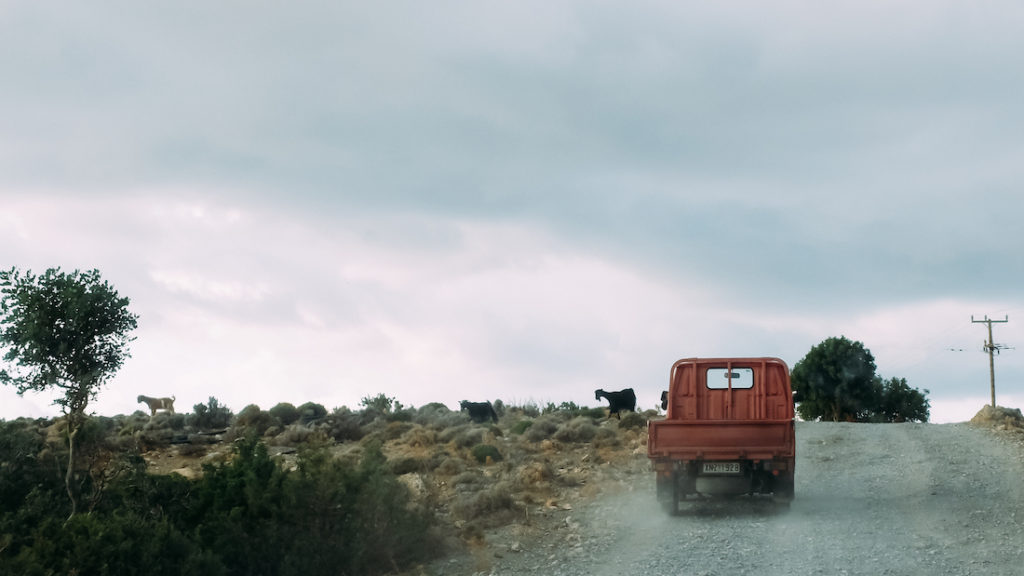
Q: I know that you love traveling. Is there a place that you daydream of when you feel stressed? I mean, a place you love so much that you wish you could teleport when everything around you is too much?
MR: I like driving around Portugal. I have been there around 10 times, hired a car and discovered little towns, villages, and enjoyed the landscape. I think of sunny Portugal when the Berlinale stress gets very tight.
Q: After the festival’s end, will you go on vacation or relax at home?
MR: I will go to London after the next Berlinale. A friend of mine is celebrating his birthday – and London has been one of my favorite cities since I was 18. I have 2 other friends there and try to hop over every now and then. Museums (V&A) and vintage markets are my favorites. After the last Berlinale, I spent 3 weeks in Malaga, learning some Spanish. That was a great experience, too. I did take the opportunity to also visit Granada – where I have spent 3 months in 1996 when shooting a film. A great town!
Q: Which places are on your bucket list?
MR: Bucharest is a city I would love to discover. And I want to go hiking in Georgia and Armenia in the summer. I had planned to go hiking there in 2020, but then the pandemic came…
Q: Finally, as a Greek, I have to ask you: which places have you visited in Greece? I guess you’ve been to Greece, right?
MR: Happy to say I did visit Crete on a hiking trip. I planned a trip to Thessaloniki at one point, but could not make it in the end. I still have quite some things to discover in Greece!
Mariëtte, thank you so much for your time, and I wish you the best of luck for the upcoming Berlinale!
Mariëtte Rissenbeek Biography
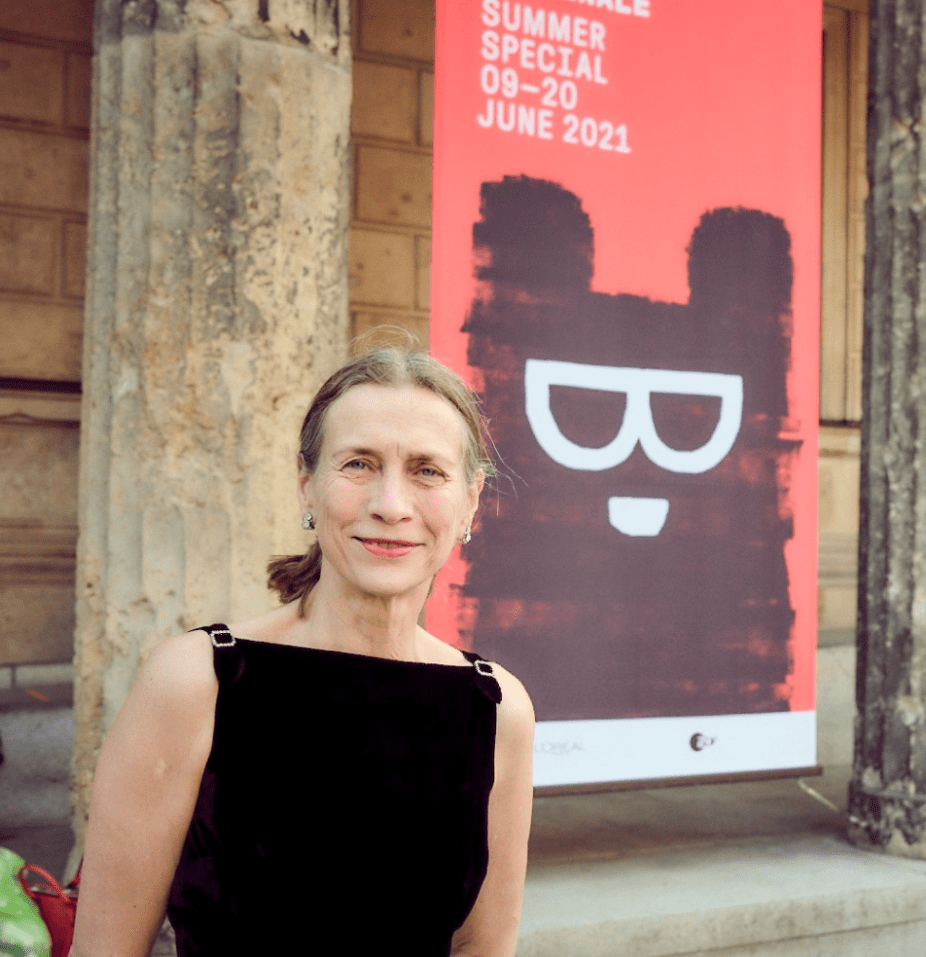
Mariëtte Rissenbeek is the Managing Director of the Berlin International Film Festival.
Born in the Netherlands, she studied German language and literature, theatre studies, and sociology at the Rijksuniversiteit Utrecht and the Freie Universität Berlin. After receiving her master’s degree, she moved to Berlin permanently.
In 1986, she joined the film distribution company, Tobis Film, where she was in charge of acquisitions as well as the exploitation of ancillary German-speaking rights. In 1995, she moved into film production and worked as a producer at Ziegler Film, where she produced several different film formats. In 1998, she established her own production company in Hamburg and worked with Mika Kaurismäki before moving to the Munich-based production company Hofmann & Voges in 2000.
In 2003, Mariëtte Rissenbeek became responsible for international festival relationships and public relations at German Films, the German organization for the international promotion of German cinema. She was appointed Deputy Managing Director at German Films in 2006, rising to Managing Director in 2011.
My Berlinale resources
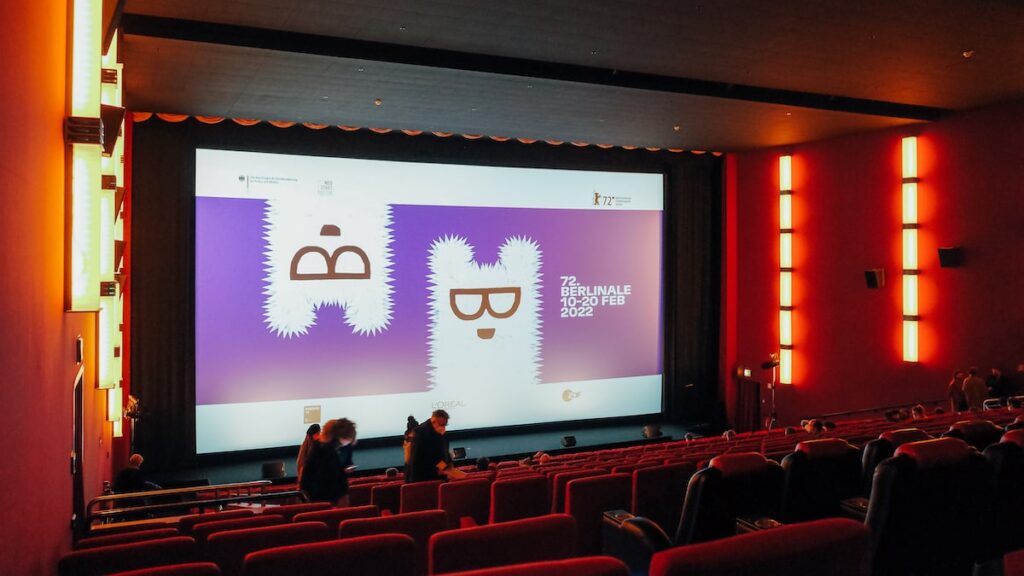
In the last section of this article, you’ll find my Berlinale resources. I cover every year the festival and here’s what you can read:
My Berlinale guide. In this long festival guide, you’ll find everything you need to know about the Berlin International Film Festival. I regularly update the article to reflect changes (usually every January). You can read the Berlinale guide here.
Where to stay during the Berlinale. After attending the festival for more than 15 years, I compiled a list of hotels that will offer you a smooth Berlinale experience. Apart from their quality of their services, these hotels are close to the festival’s main hubs and conveniently located close to metro and bus lines. You can see my handpicked selection of the best Berlinale hotels here.
My Berlinale recaps. Since I started blogging, I have always written about the Festival. Sometimes, you’ll read fleeting impressions; other times, it’s about the movies I loved. You can read the 2019 diary, the 2020 recap, and the 2022 recap.
Q&A Videos. One of the best Berlinale experiences is attending the Q&As after the film screenings. I often shoot videos from the Q&As and upload them on my YouTube channel. You can watch the Berlinale 2019 playlist here and the Berlinale 2020 playlist here.
Berlin guide. That’s actually a bonus section. If you need extra ideas and Berlin tips for your stay, there’s also a comprehensive guide on the blog on how to spend three or more days in the city.
My Berlinale mailing list. Last but definitely not least, I also run a dedicated Berlinale Updates newsletter. Between late December and the end of February, I share Berlinale news and movie tips and update you on changes. You can see the Berlinale mailing list page here -or you can subscribe below.
Pin it for later
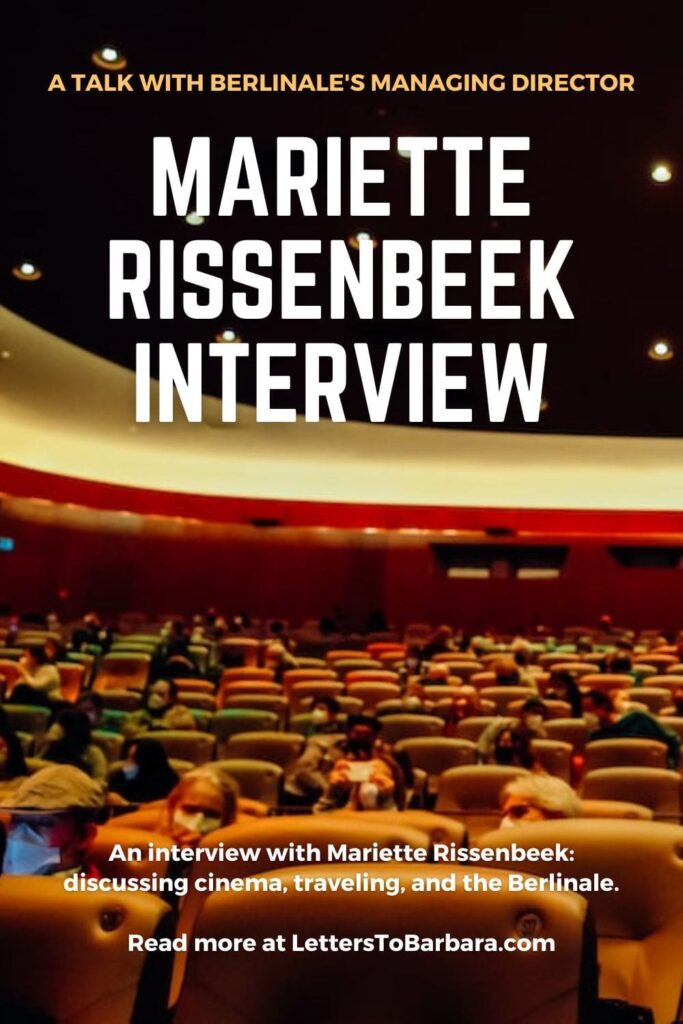
Sharing is caring. Share the interview with Mariette Rissenbeek with your friends.
Last Updated on January 8, 2025 by George Pavlopoulos
